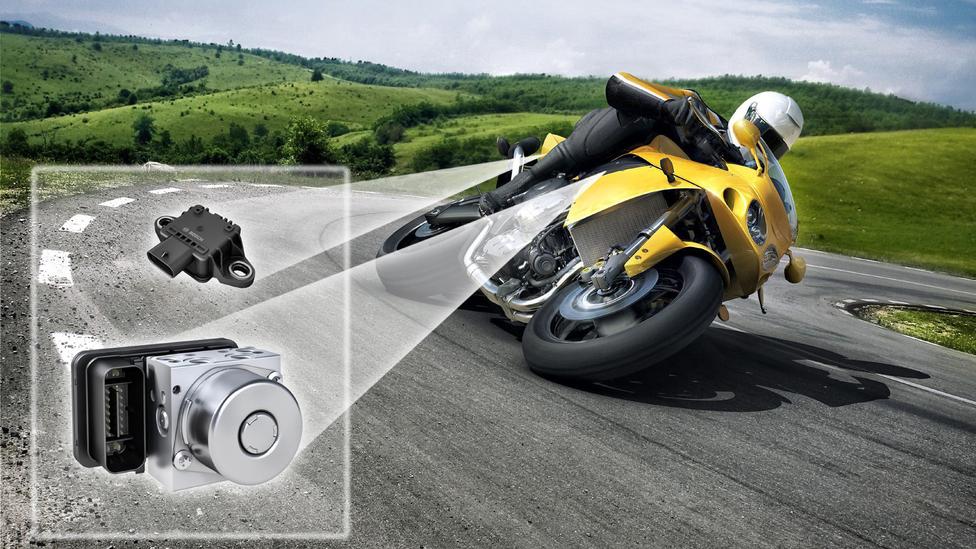When electronic stability control (ESC) first appeared on luxury cars in the 1990s, its effect was described as "the hand of God”, reaching down and righting the driver’s mistakes.
But what vehicle is less tolerant of mistakes than a motorcycle, with its propensity to tip over and subsequently expose its rider to all manner of pain and suffering?
What if, as with ESC, engineers developed a system that would stand in the background, unnoticed, waiting to reach out with its electronic hand at just the instant when the bike is poised to tumble?
What you’d have is something not unlike the Bosch Motorcycle Stability Control System (MSC). It is fitted to the Ducati 1299 Panigale superbike and KTM 1190 Adventure, while BMW Motorrad, the motorcycle subsidiary of BMW Group, employs some of its components in conjunction with the company’s own designs on all its models.
Bosch’s development objective was not for the computer to ride the bike automatically, but to serve as an otherwise invisible safety net for riders, says Frank Sgambati, director of marketing and product innovation at Bosch’s North America division. "The draw for motorcycle riding is the excitement,” he acknowledges. "We don’t want to interfere with or change that experience. We only want [MSC] to appear in panic situations.”
Anti-lock braking, a feature that helps dramatically reduce the likelihood of a crash, has been around for many years for motorcycles, but fitment has been limited largely to expensive models – and even then typically as an extra-cost option.
The Insurance Institute for Highway Safety (IIHS), a non-profit organisation financed by the US insurance industry, reports that ABS-equipped motorcycles are 37% less likely to be involved in crashes that result in rider death. Bikes so equipped also experience 22% fewer insurance claims for crash damage, according to IIHS.
"In an emergency, a rider faces a split-second choice to either brake hard, which can lock the wheels and cause a crash, or hold back on braking and risk running headlong into an obstacle,” notes Russ Rader, IIHS spokesman. "That’s where ABS comes into play, helping a rider brake hard without fear of a lock up. The data are accumulating that ABS is reducing crashes, cutting the risk of a fatal crash by almost a third.”
But as in cars, ABS alone leaves room for improvement. Bosch’s MSC system builds on its existing ABS hardware, adding a yaw and pitch sensor to the ABS module so that the computer knows how far over the bike is leaning and whether it is tilting upward from acceleration or downward from braking.
A locked wheel on a car leaves a skid mark and marginally increases braking distance. A locked front wheel on a motorcycle is nearly synonymous with a fall, while locking a rear can be more benign, provided the rider doesn’t release the rear brake while the bike is sliding sideways. That is an invitation for the rear tire to regain traction when the bike is not pointed straight, and to pitch the rider off as the bike tries violently to realign itself with the direction of travel.
To mitigate such dangers, Bosch’s motorcycle ABS module gathers data from wheel-speed sensors and uses it to control the flow of hydraulic pressure from pump to brake – applying and releasing pressure as needed to avoid lockup. A lean-angle sensor further determines how much traction is available to the bike at any given time.
This may all seem like wonderful news for the cause of motorcycle safety, if only MSC were available on less expensive bikes to accommodate new riders – who would most stand to benefit from such a system.
Sgambati notes that more models at lower price points will carry the technology in coming years. Just as the cost of ABS has fallen incrementally, so will the cost of MSC, he says. As an example, the current MSC system is the first specifically developed for motorcycles rather than adapted from automotive technology. Given the up-front investment has largely been made, costs should come down.
Will stability control even find its way into the entry-level motorcycles favoured by the least experienced riders? "What we hope is soon,” Sgambati says. The sooner the better, because every rider benefits from occasional bouts of divine intervention – all the better to help stay shiny side up.
(BBC)
www.ann.az
Follow us !











